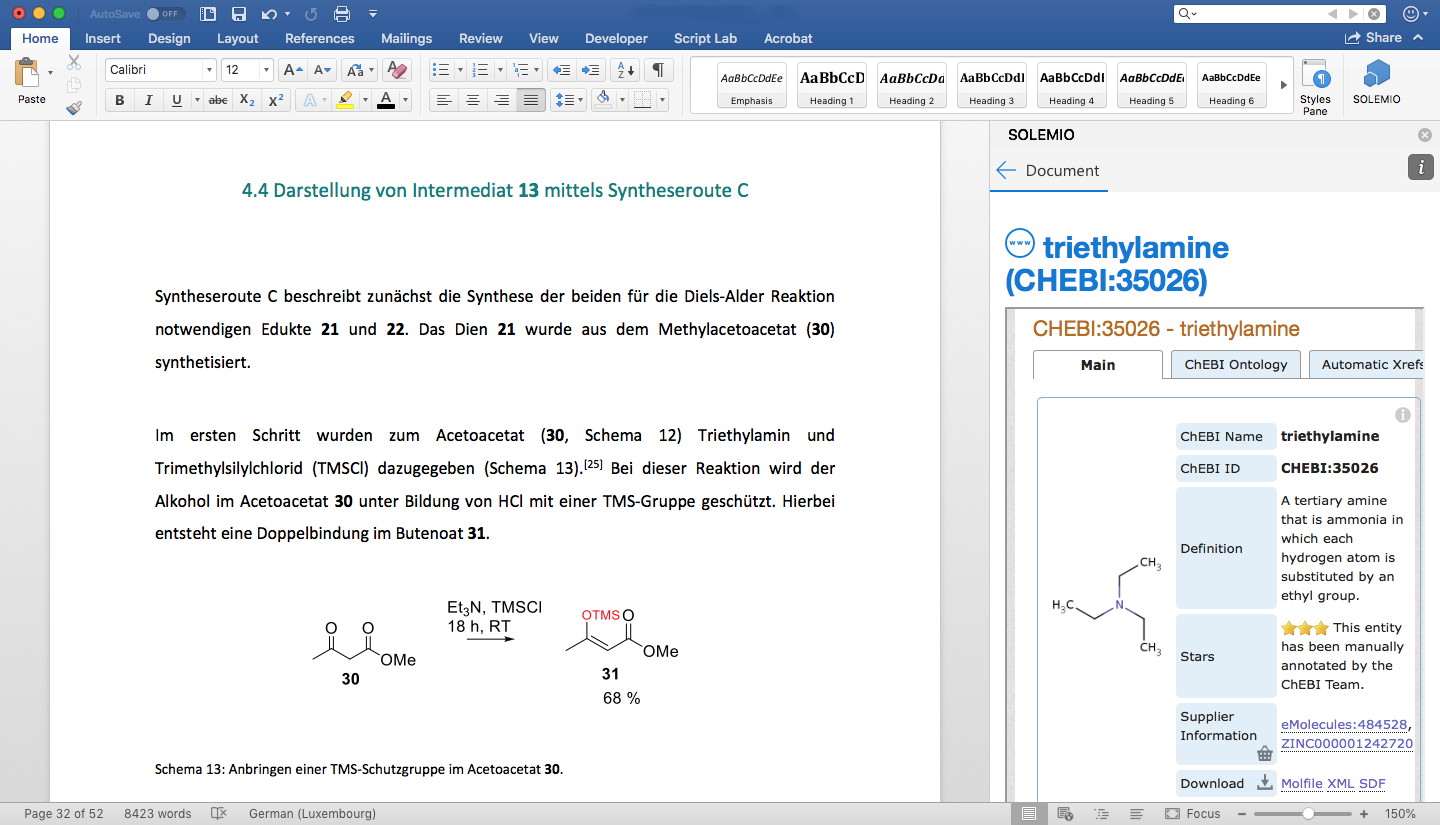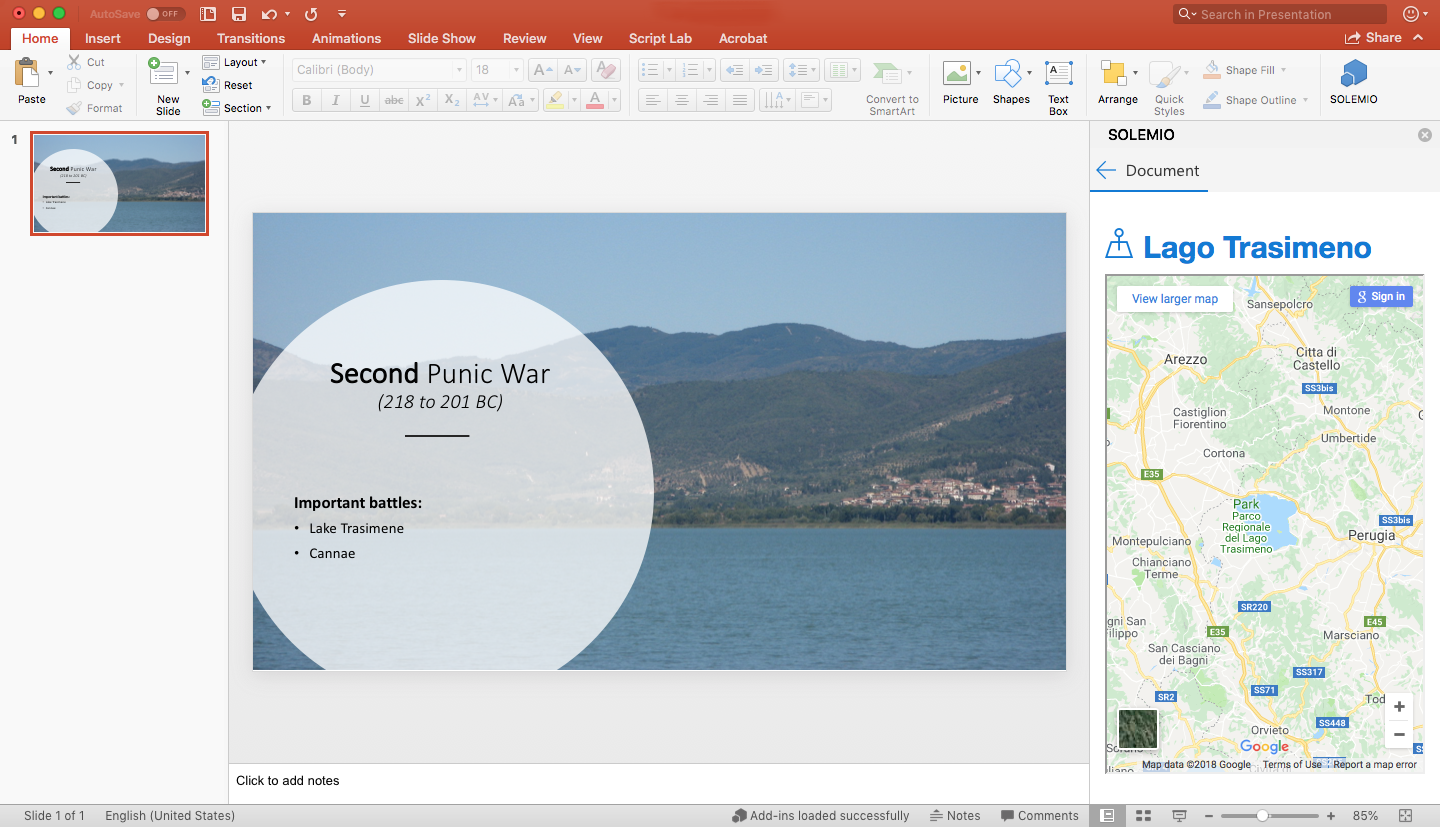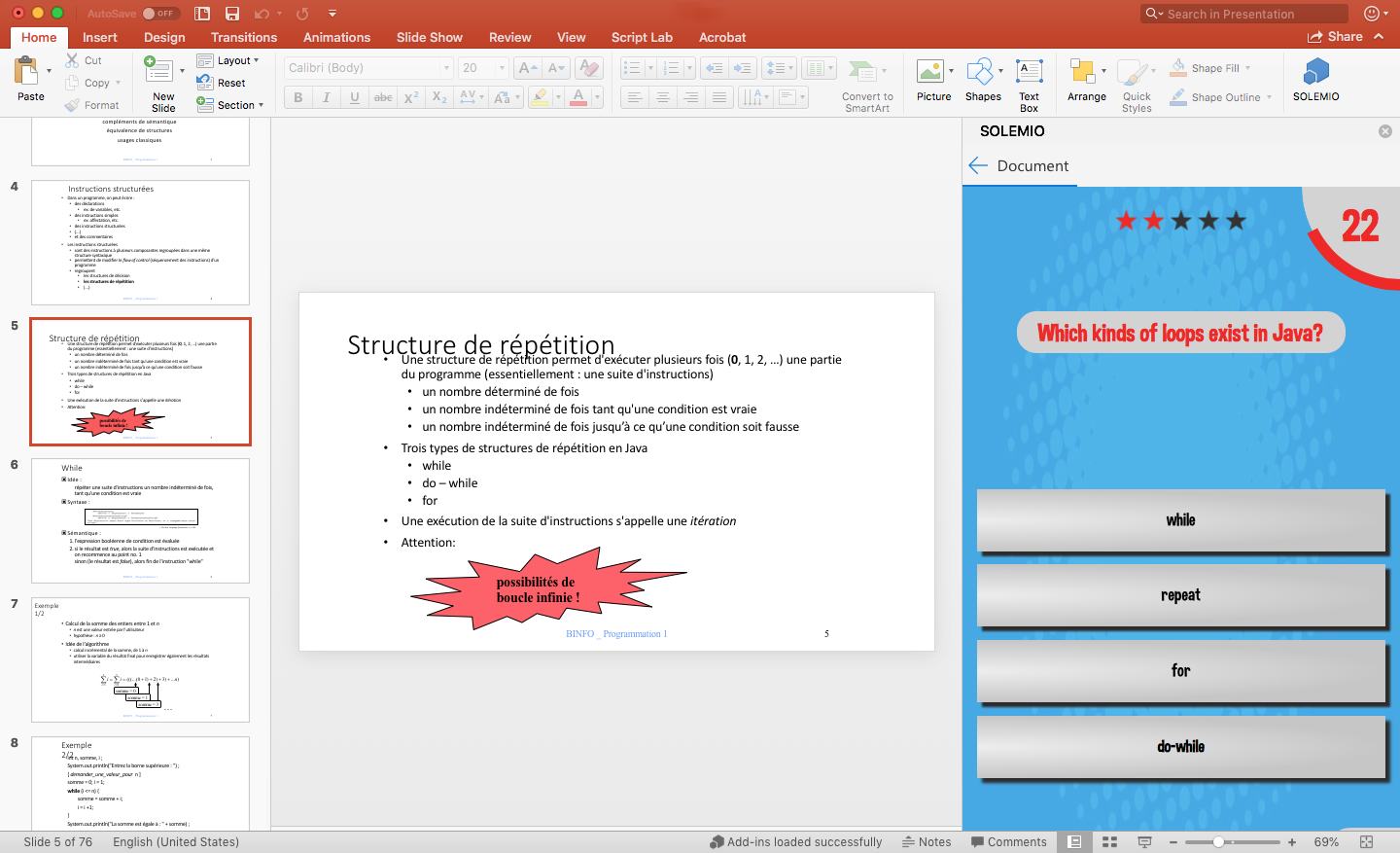Context-based Integration of Learning Material
The ALMA framework enables the integration of learning material in different learning contexts in order to help students find relevant resources for the task at hand.
Adaptive Recommendations
Different learners prefer different types of learning material. While some prefer traditional textbooks, others prefer slideshows, videos or even games. Recommendations in ALMA take those preferences into account.
Active Learning & Gamification
Learning resources do not need to be static. By using quiz activities from the game-based student response framework, active learning is fostered.
Learning Support through Student-centered Integration of Learning Material
The ever-growing amount of heterogeneous learning material from a myriad of sources can pose several challenges to learners, including Meno's paradox of inquiry, information overload and cognitive overload. In addition, learners can suffer from the split-attention effect while going back and forth between a task and learning material.
The ALMA framework enables a fine-grained and cross-curricular integration of learning material. Learners can pinpoint relevant material concerning the task they are currently doing, without ever leaving their study environment. This has been realized in different contexts, such as IDEs for computer science students or a Sketchnoting app. Support for Moodle has also been implemented.
Leveraging the power of the Semantic Web
By using Semantic Web technologies like ontologies and Linked Open Data, annotations on learning resources enable an unambiguous and fine-grained retrieval related to the task at hand. While addressing the meta-access problem, it allows learners to grasp the inherent relations among resources, even across the boundaries of a single subject, fostering their global understanding.
Active Learning through Gamification
Learning material does not need to be static. By using resources that foster active learning, students are more likely to understand and retain learning aspects. The game-based student response framework, apart from the classroom tool, also provides a mobile app to enable a continuous learning experience. Based on spaced repetition, the learning process is tracked while students are replaying the quiz activities played in class, allowing to recommend them the topics that need particular attention. Again, related learning resources can be pinpointed from within this app, without the need of searching for it manually.
Authoring Support for Teachers
In order to prepare learning material for their ontology-based integration, annotations shall be added to resources without increasing the workload of authors. Therefore, annotation support has been introduced for popular authoring software such as Office 365. By identifying core concepts in a document through a knowledge graph-based approach, both annotations as well as related material are suggested to authors (teachers, knowledge workers, instructional designers). Thus, apart from preparing a resource to be reutilized in the different contexts mentioned above, the very authors can also benefit from the recommendation of related learning material, either for elaborating their own resource or to leave additional reading assignments or information to the learners.



The ALMA-Yactul ecosystem has been developed in the context of the PhD project of Christian Grévisse, under the supervision of Prof. Dr. Steffen Rothkugel, at the University of Luxembourg.
References to related publications can be found on ORBilu. For further information, please contact christian.grevisse@uni.lu.
